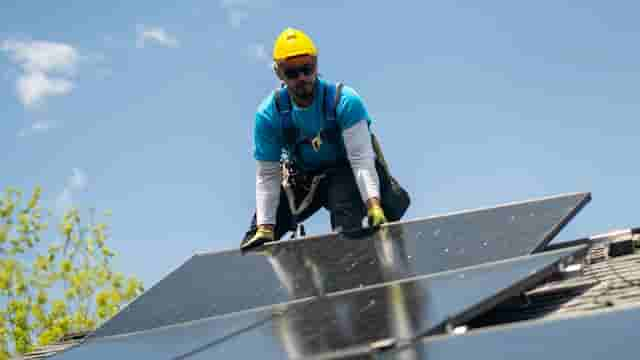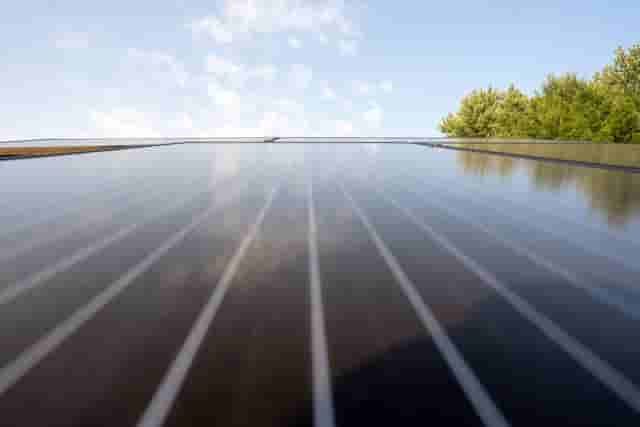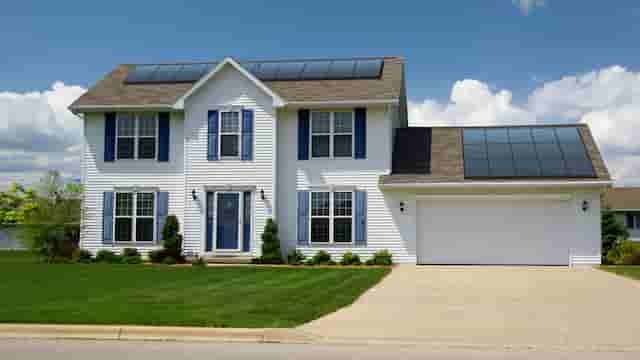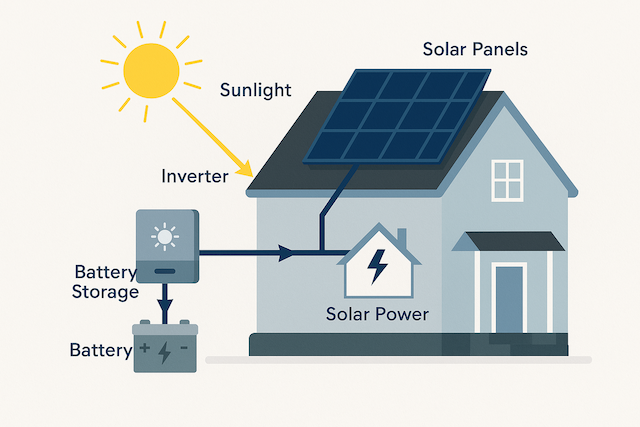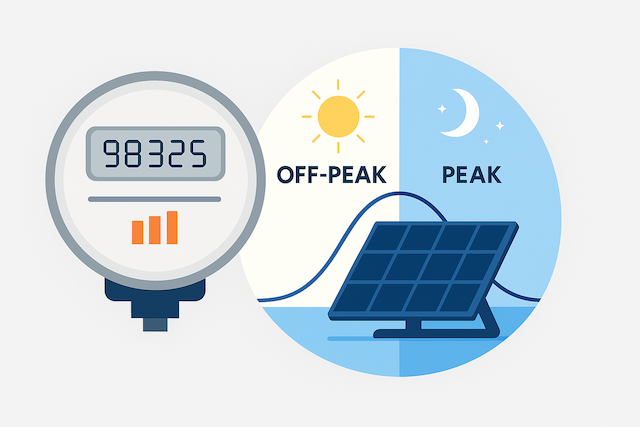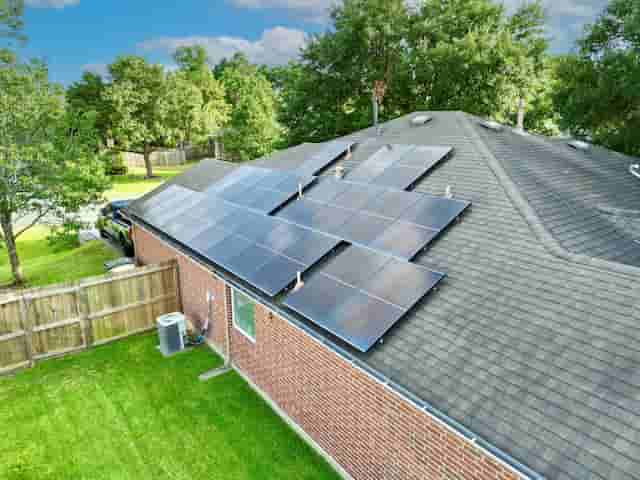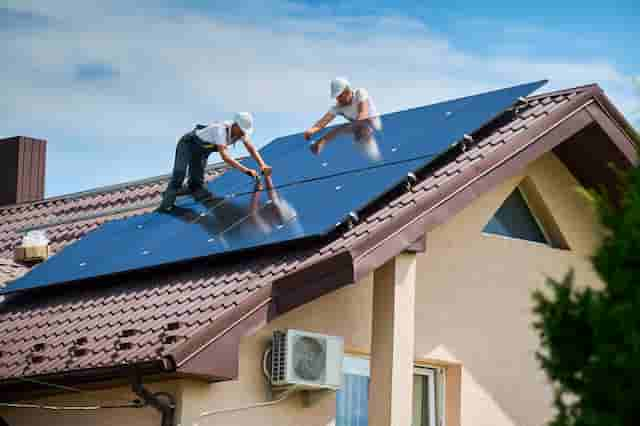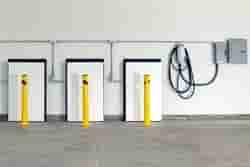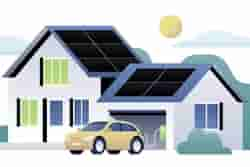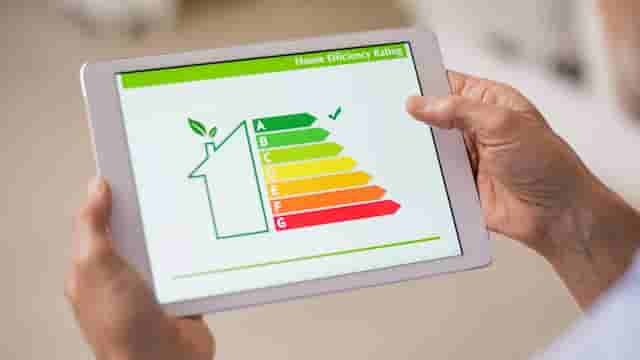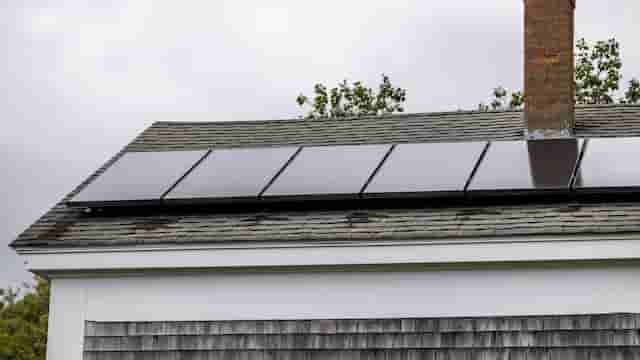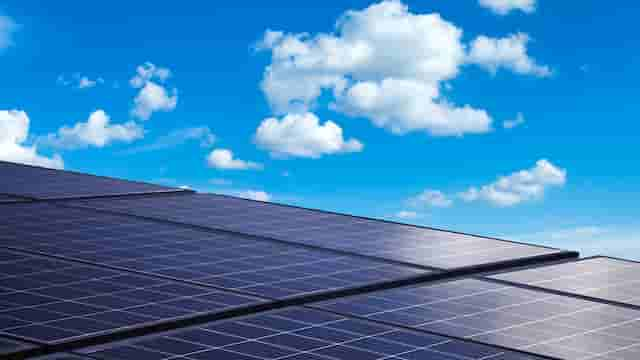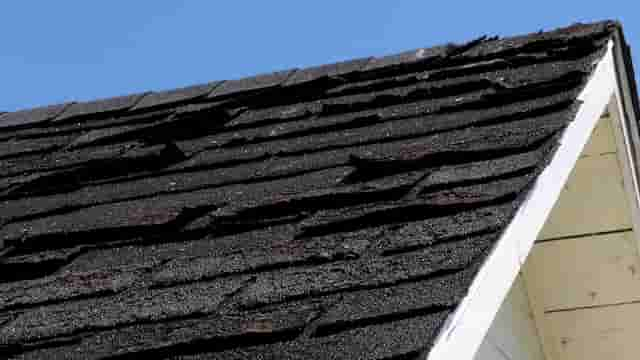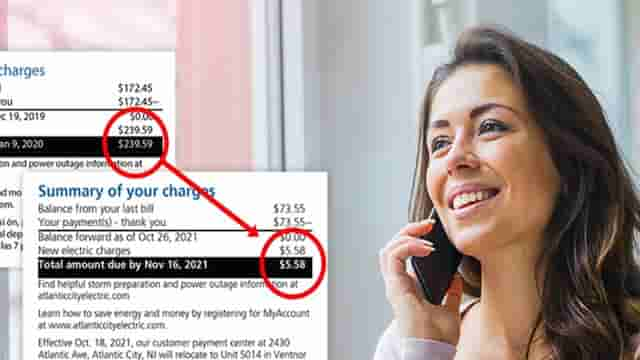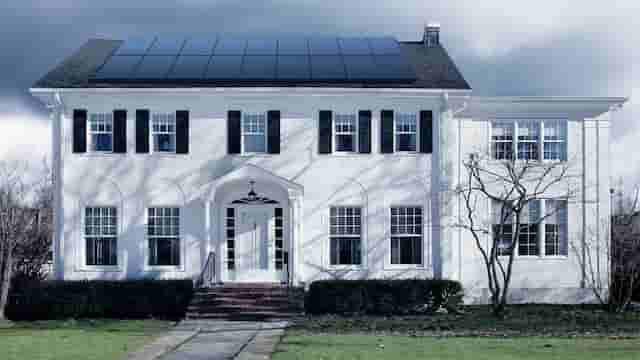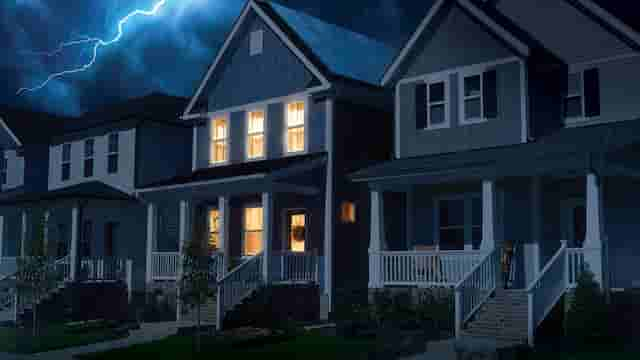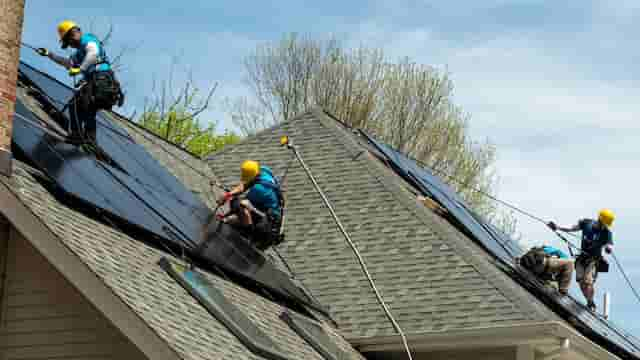When it comes to solar power, summer gets a lot of attention. But knowing what to expect during the other seasons is just as important.

Throughout the year, solar production and energy use shift. Understanding these seasonal patterns will help you maximize your solar savings, both annually and over the lifetime of your system.
Summer
- Solar production: Summer is generally when production peaks. With long days and abundant sunshine, your panels can generate a significant amount of electricity. This is an excellent opportunity to maximize your system's output and bank energy credits for future use.
- Energy use: Air conditioning, pool pumps, fans, and other seasonal appliances may drive up your electricity consumption. On the other hand, you won’t need to keep your lights on as much as in other seasons because summer days are longer.
- Seasonal tip: The rain does a great job of keeping panels clean. But if you want to be extra sure that no pollen or debris are blocking sunlight, use a garden hose to rinse off your panels. Removing impurities ensures panels absorb as much sunlight as possible.
Fall
- Solar production: Shortening days and reduced sunlight cause production to decline. However, fall can still be a productive time for your solar system. Even with fewer hours of daylight, your panels can continue to generate a considerable amount of energy.
- Energy use: Your energy use in the fall is likely to be moderate due to milder temperatures and ample sunlight. The reduced need for heating and cooling helps keep electricity consumption stable.
- Seasonal tip: To prepare for the winter, make your home as energy efficient as possible. Simple actions, like sealing air leaks or having your HVAC system serviced, can lead to energy savings.
Winter
- Solar production: As the amount of daylight drops, so does solar production. With fewer hours of sunlight, your solar system has less of an opportunity to produce clean energy for your home. However, your panels still make the most of the light. Even though production decreases, it’s better to run on some clean, affordable solar power than rely solely on expensive utility energy.
- Energy use: If you live somewhere that gets cold, you’ll need to keep your heat running to stay warm through the season. If you celebrate any of the winter holidays, you may add some festive lights or spend more time cooking big meals, which require more energy than usual. Because the sun sets earlier and rises later, you’ll depend more on artificial lights than natural light to illuminate your home. With all these factors, energy use tends to increase during the winter months.
- Seasonal tip: Whether you have a programmable or manual thermostat, you can get on a schedule that helps you save on heat-related energy costs. Lower the temperature when you’re sleeping or not home, and raise it when you need your space to feel warmer.
Spring
- Solar production: Spring brings more than just flowers and showers—it also brings more sunlight and solar power! As the sun stays out longer, your system is able to produce more energy for your home. If your utility bill rose a bit over the winter, now you might see it drop.
- Energy use: Your energy use can be relatively low in the spring because temperatures aren’t extreme. You likely rely less on heating and cooling to keep your home at a comfortable temperature. You can also go a little bit longer without flipping the lights on because the sun sets later in the evening.
- Seasonal tip: As trees bud and grow fuller with leaves, check for branches casting shadows on your solar panels.
Savings balance out over time
Since solar production and energy use fluctuate throughout the year, it’s essential to consider savings on an annual basis. This approach allows you to account for net metering, if available in your area. Net metering helps you bank credits on sunny days when you produce more solar energy than you use. These credits can then offset the cost of extra energy you draw from the utility grid on days when production is lower. Learn about net metering.
Solar’s seasonal success
Now that you know what to expect from your solar system throughout the year, you can look forward to the predictability and affordability it has to offer.
Help friends and family prepare for seasonal changes by recommending they chat with Trinity. If they decide solar is right for them, you’ll get a cash referral bonus after their installation.

